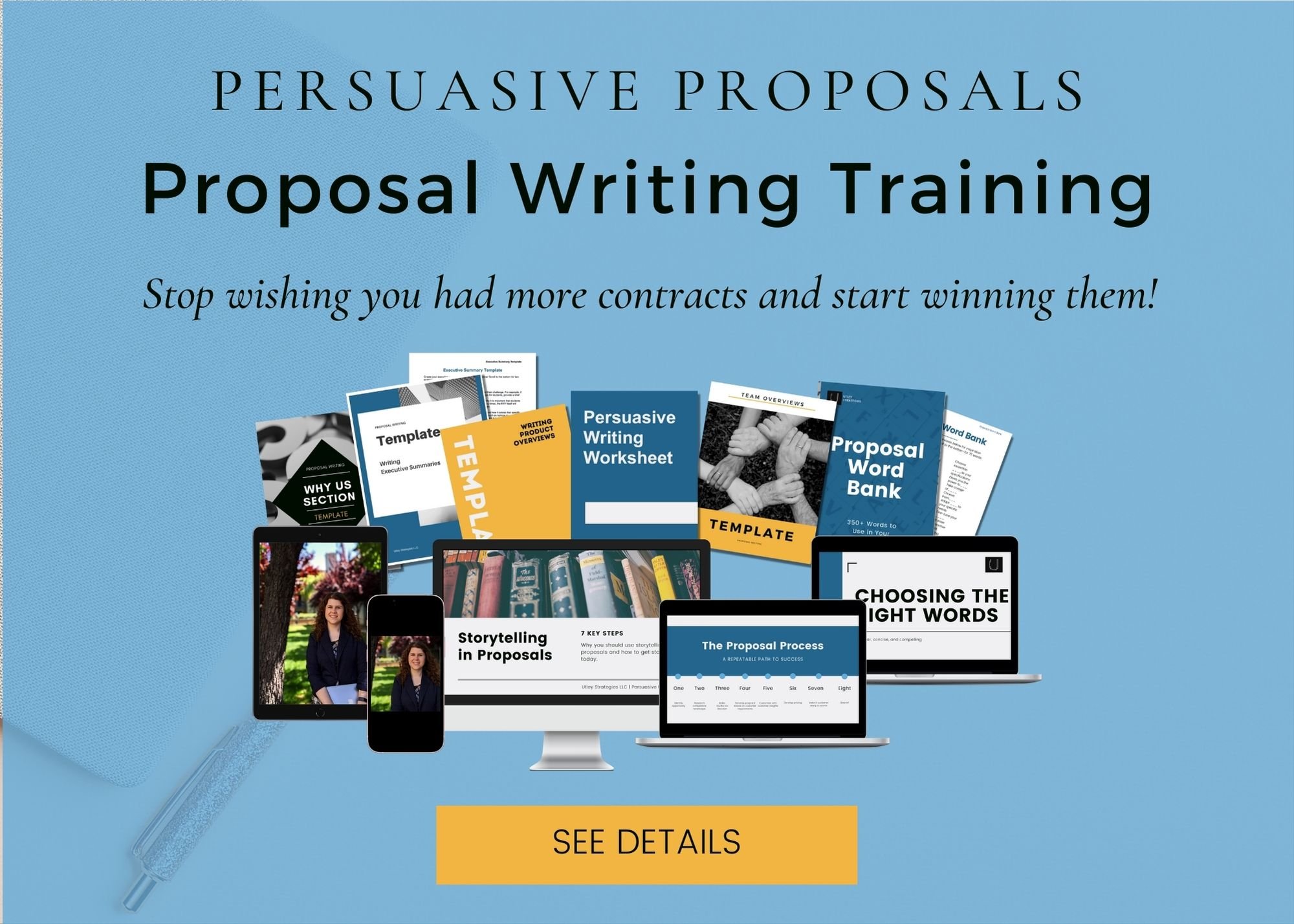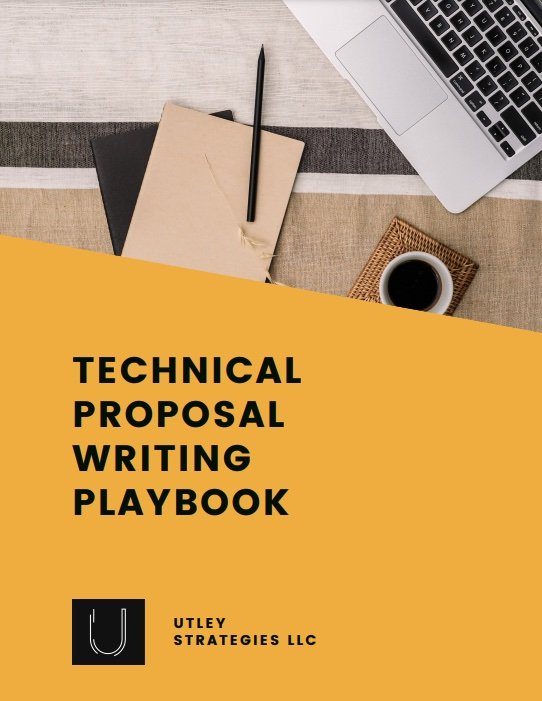Should I Hire a Proposal Writer or Do It Myself?
There comes a point for every B2B business where you have too many proposals on your plate and not enough time to do them all. The natural next question is: Should I hire a proposal writer or keep doing this myself?
If you’re struggling with that question now, let’s take a look at your options to determine what is a best fit for your company.
Two Types of Proposal Writers
Before you create the job posting, remember that there are two types of proposal writers you can hire: an employee or a consultant.
Both have their pros and cons, but determining the best fit for your company will depend on your overall proposal strategy and long-term business goals.
When to Hire an Employee
Hiring a proposal writer can sometimes be the best decision for your company. Having a resource dedicated to securing new contracts is good for your long-term revenue, provides support to your sales team, and will likely result in a higher overall win rate.
Here is a good rule of thumb for knowing if you’re ready to hire a proposal writer:
You send out many proposals per month. This number varies based on the complexity of your proposals, but in general, if you’re creating more than three proposals per month in response to RFPs, then having someone dedicated to this is a good idea, especially for government RFPs. If your proposals are smaller and less complex, you can wait longer until you need a dedicated resource.
RFPs are part of your long-term company growth strategy. If your organization is focused on securing larger contracts or projects as part of the growth strategy, then a proposal writer can help you achieve those goals. Once you start responding to RFPs regularly, you will need to devote more time to creating a competitive strategy, evaluating opportunities, and creating persuasive content that will help you win. Monitor what’s on your docket so you have the team on staff when you’re ready to start pursuing more and more RFPs.
Each proposal includes many teams to manage and coordinate. Many companies combine proposal writing with another role (see below), and the more complex your proposals, the more it becomes a full-time job. If your proposals require securing content from multiple internal teams, coordinating with partners or subcontractors, or extensive legal reviews and revisions, then proposals are going to take up too much time to manage in addition to other work. To avoid delayed work or results for the other area of the job, it might make more sense to have someone dedicated exclusively to proposals.
This decision will vary for every company, but these are a few of the most common signs that it may be time to hire a proposal writer.
When to Outsource to a Consultant or Firm
Hiring a full-time employee isn’t the only option for help, however. Sometimes it makes more sense to work with a consultant or consulting firm. Services at these organizations vary from full management and writing of your proposals to strategy creation to training and development.
Signs that you might want to work with a proposal consultant include:
Need outside perspective & expertise. When a particularly competitive or complex RFP lands on your desk, this is the perfect time to bring in a consultant. They can guide you through the process, help you develop your competitive strategy, and work through any complexities to make your proposal clear and compelling.
Unable to invest in training and developing an employee currently. While all of the points in the previous section might apply to you, sometimes you just don’t have the budget to hire and train a full-time employee. In that case, working with a consultant on a per-project basis can give you the extra support you need without the financial burden.
Evaluating viability of long-term RFP pursuit. If you’re new to RFPs, then it’s important to first establish that you plan to pursue them in the long-term before investing in an employee. Working with a consultant can familiarize you with the process and help you determine if this is the best path forward for your organization.
Testing a new proposal process. Sometimes the best way to improve your process is to try on someone else’s for a while. Working with a consultant will give you behind-the-scenes of a process different from your own and help you determine how you might need to revamp your existing process for better results.
Developing a base of proposal content & template. Many times you need just a little bit of help to keep doing your proposal work on your own. In this case, working with a consultant to update your proposal content library and template can give you a fresh sales pitch that resonates with your customers without having to outsource the entire process.
Proposal consultants are a great way to supplement your team without the long-term commitment of a full-time employee.
When to do-it-yourself
Many business owners or sales professionals are able to create proposals in addition to their other responsibilities. This is certainly a great option for many organizations.
A few of the most common factors that enable business owners or sellers to continue sending out proposals include:
Less complex proposals. One of the most important factors is the complexity of the proposal. Many organizations are able to use proposal softwares or CRM tools to send simple 1-10 page proposals to prospective clients. If most of your proposals are in this category instead of complex RFPs, then it often isn’t necessary to find help.
Few RFPs per year. If you only respond to one RFP a quarter, then you can plan accordingly when an RFP is released and still maintain your other responsibilities.
Invested in a training and have a good strategy. Even with simple, non-RFP proposals, a strong proposal strategy is essential to persuading buyers. If you know the ins-and-outs of proposals and are happy with your win rate, then adding more complexity to your proposal process might be overkill.
Have a base of proposal content & good template to streamline your process. Two important success factors for proposals are your base content (also called a content library) and your template. When you have a content library that’s developed with your customer base in mind and an easy-to-use, well-designed template, creating simple yet persuasive proposals becomes much easier.
Optional: Adding to responsibilities of another team member
There are many times where you simply don’t have the time to continue creating proposals yourself, and that’s where many organizations shift proposal responsibilities to another team member, such as a marketing assistant. In general, this is best to do with the factors outlined in the do-it-yourself category. When your proposal process looks more like the first example, it’s best to have a full-time proposal writer so your marketing team can focus on marketing and generating leads.
Next Steps
Many organizations benefit from developing a long-term growth plan for their proposal approach. If you know you want to focus on pursuing RFPs in the future, it’s best to start preparing now for what you will need to succeed so you aren’t caught unaware when that perfect RFP lands on your desk.
If you need help getting started, check out our trainings and templates!



